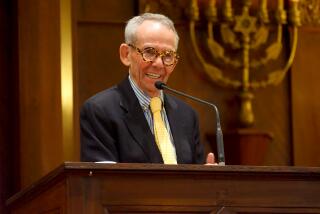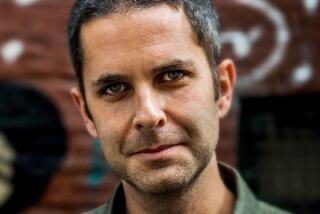FICTION : NEONS <i> by Denis Belloc, translated from the French by William Rodarmor (David R. Godine: $17.95; 103 pp.).</i>
- Share via
This is an old story, but one that literature has ignored until relatively recently--a universal story that Denis Belloc sets in France in the 1960s. A poor boy whose mother neglects him and whose stepfather beats him finds excitement and a kind of love in “tearooms,” or public restrooms. Uneducated but good-looking, he is absorbed into a homosexual underworld of prostitution, petty crime and unstable relationships with men a little older and a little better off than he.
The protagonist, named Denis like the author, “lives the absence” of his father, a boxer who was killed in a carnival sideshow. He has a vacancy in him that nothing seems to fill. He drifts through blue-collar jobs, prison and intervals as a kept man, periodically infected by syphilis, impulsively drawn to violence, oblivion and flight. The novel’s minimalist style fits the subject. Belloc presents Denis’ life in terse, detached scenes, as brutally clear but as fleeting as the neon lights that flow over him as he guns a stolen motorcycle through the streets of Paris.
Denis hardly has a chance. At 20, an ex-con with a drinking problem, his marketability waning--”(my body is) all I have to give”--he seems to have little to look forward to. He does have an interest in painting--his mother’s one positive legacy. And that literary phrase “living the absence” suggests that he may be acquiring an artist’s ability to give form to his pain. Belloc leaves the question open; his main purpose is to show how deforming pain can be.
More to Read
Sign up for our Book Club newsletter
Get the latest news, events and more from the Los Angeles Times Book Club, and help us get L.A. reading and talking.
You may occasionally receive promotional content from the Los Angeles Times.










